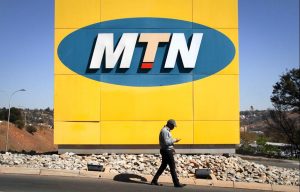Foxconn offers to pay workers to leave world’s largest iPhone factory after violent protests | CNN Business

Hong Kong
CNN Business
—
Foxconn has offered to pay newly recruited workers 10,000 yuan ($1,400) to quit and leave the world’s largest iPhone assembly factory, in an attempt to quell protests that saw hundreds clash with security forces at the compound in central China.
The Apple supplier made the offer Wednesday following dramatic scenes of violent protests on its campus in Zhengzhou, the capital of Henan province, in a text message sent from its human resources department to workers.
In the message, seen by CNN, the company urged workers to “please return to your dormitories” on the campus. It also promised to pay them 8.000 yuan if they agreed to quit Foxconn, and another 2,000 yuan after they board buses to leave the sprawling site altogether.
The protest erupted on Tuesday night over the terms of the new hires’ payment packages and Covid-related concerns about their living conditions. Scenes turned increasingly violent on Wednesday as workers clashed with a large number of security forces, including SWAT team officers.
Videos circulating on social media showed groups of law enforcement officers clad in hazmat suits kicking and hitting protesters with batons and metal rods. Some workers were seen tearing down fences, throwing bottles and barriers at officers and smashing and overturning police vehicles.
The protest largely tailed off around 10 p.m. on Wednesday as workers returned to their dormitories, having received Foxconn’s payment offer and fearing a harsher crackdown by authorities, a witness told CNN.
The Zhengzhou plant was hit by a Covid outbreak in October, which forced it to lock down and led to a mass exodus of workers fleeing the outbreak. Foxconn later launched a massive recruitment drive, in which more than 100,000 people signed up to fill the advertised positions, Chinese state media reported.
According to a document setting out the salary package of new hires seen by CNN, the workers were promised a 3,000 yuan bonus after 30 days on the job, with another 3,000 yuan to be paid after a total of 60 days.
However, according to a worker, after arriving at the plant, the new recruits were told by Foxconn that they would only receive the first bonus on March 15, and the second installment in May – meaning they must work through the Lunar New Year holiday, which starts in January 2023, to get the first of the bonus payments.
“The new recruits had to work more days to get the bonus they were promised, so they felt cheated,” the worker told CNN.
In a statement Thursday, Foxconn said it fully understood the new recruits’ concerns about “possible changes in the subsidy policy,” which it blamed on “a technical error (that) occurred during the onboarding process.”
“We apologize for an input error in the computer system and guarantee that the actual pay is the same as agreed,” it said.
Foxconn was communicating with employees and assuring them that salaries and bonuses would be paid “in accordance with company policies,” it said.
Apple, for which Foxconn manufactures a range of products, told CNN Business that its employees were on the ground at the Zhengzhou facility.
“We are reviewing the situation and working closely with Foxconn to ensure their employees’ concerns are addressed,” it said in a statement.
On Thursday morning, some workers who had agreed to leave had received the first part of the payment, a worker said in a livestream, which showed workers lining up outdoors to take Covid tests while they waited for departing buses. Later in the day, livestreams showed long lines of workers boarding buses.
But for some, the trouble is far from over. After being driven to the Zhengzhou train station, many couldn’t get a ticket home, another worker said in a livestream on Thursday afternoon. Like him, thousands of workers were stuck at the station, he said, as he turned his camera to show the large crowds.
Zhengzhou is set to impose a five-day lockdown in its urban districts, which include the train station, starting from midnight Friday, authorities had announced earlier.
Violent protests
The protest started outside the workers’ dormitories on the sprawling Foxconn campus on Tuesday night, with hundreds marching and chanting slogans including “Down with Foxconn,” according to social media videos and a witness account. Videos showed workers clashing with security guards and fighting back tear gas fired by police.
The stand-off lasted into Wednesday morning. The situation quickly escalated when a large number of security forces, most covered in white hazmat suits and some holding shields and batons, were deployed to the scene. Videos showed columns of police vehicles, some marked with “SWAT,” arriving on the campus, normally home to some 200,000 workers.
More workers joined the protest after seeing livestreams on video platforms Kuaishou and Douyin, the Chinese version of TikTok, the worker told CNN. Many livestreams were cut or censored. Online searches for “Foxconn” in Chinese have been restricted.
Some protesters marched to the main gate of the production facility compound, which is located in a separate area from the workers’ dorms, in an attempt to block assembly work, the worker said.
Other protesters took the further step of breaking into the production compound. They smashed Covid testing booths, glass doors and advertising boards at restaurants in the production area, according to the worker.
Having worked at the Zhengzhou plant for six years, he said he was now deeply disappointed by Foxconn and planned to quit. With a baseline monthly salary of 2,300 yuan, he has been earning between 4,000 yuan to 5,000 yuan per month, including overtime pay, working 10 hours a day and seven days a week during the pandemic.
“Foxconn is a Taiwanese company,” he said. “Not only did it not spread Taiwan’s values of democracy and freedom to the mainland, it was assimilated by the Chinese Communist Party and became so cruel and inhumane. I feel very sad about it.”
Although he was not one of the new recruits, he protested with them in support, adding: “If today I remain silent about the suffering of others, who will speak out for me tomorrow?”






